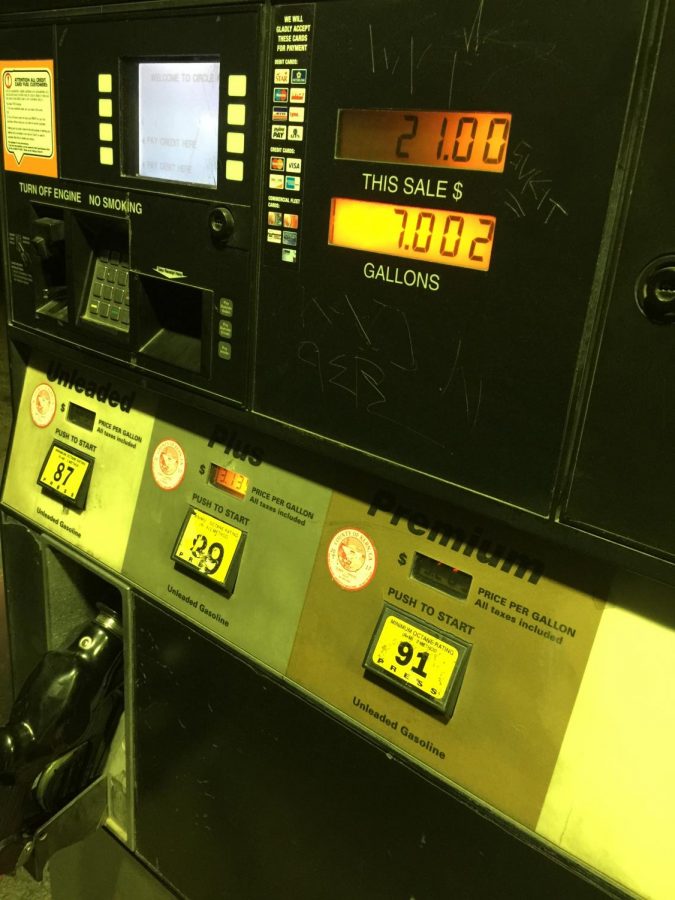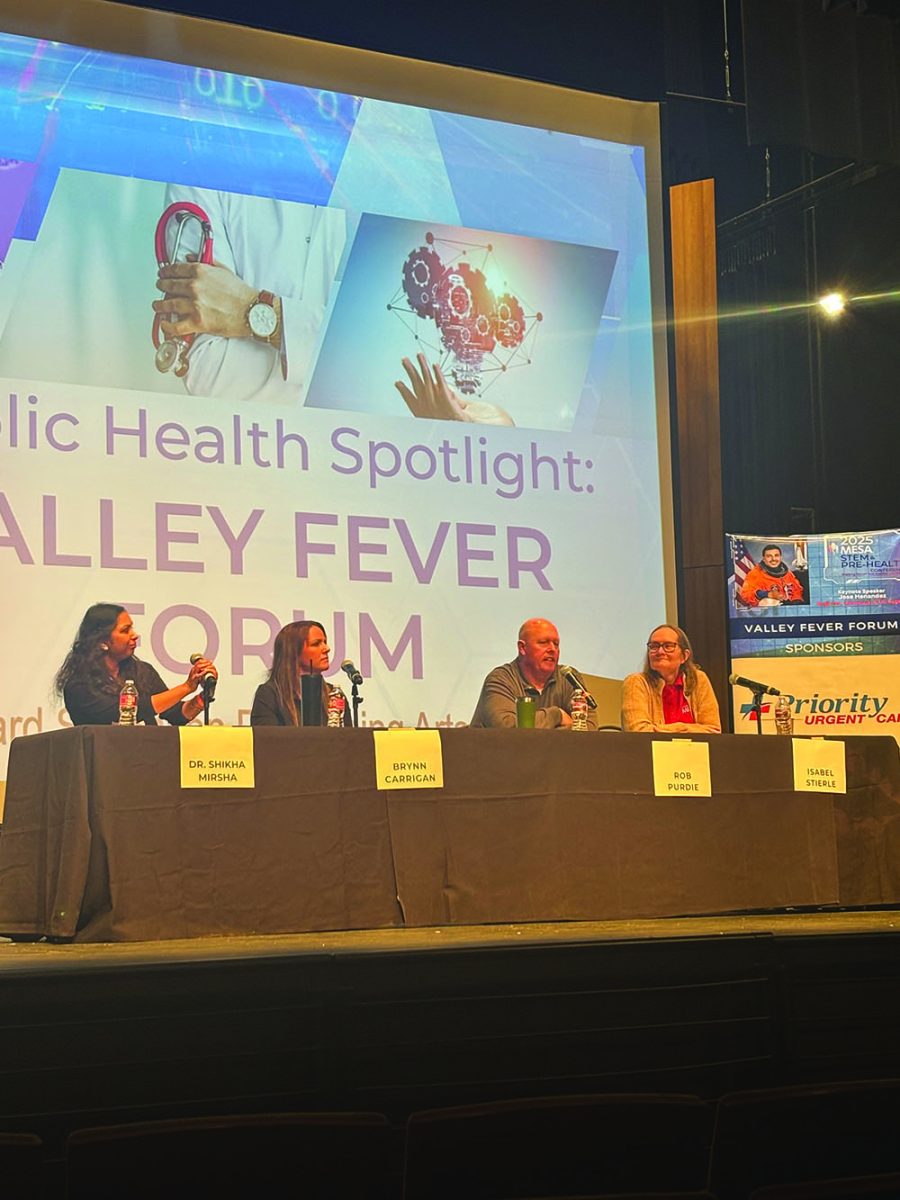Locals may be impacted by an increase in taxes
February 25, 2018
Bakersfield is already seeing an increase in gas taxes from last year’s gas tax hike, and may be set to see more taxes in the coming years due to a federal gas tax and a local sales tax increase in its preliminary stages.
Already California ranks 6th in the nation for gasoline taxes. The national average according to the American Petroleum Institute (API), is 51.73 cents per gallon; That is if Congress approves a federal gas tax hike to repair infrastructure, roads and bridges, and if city residents support council members’ potential proposal for a local sales tax increase.
Although California’s rank sits fairly high on the list of gasoline taxes for 2017, at 71.89 cents per gallon, the Golden State was not alone. Pennsylvania leads the gas tax at 77.10 cents per gallon, followed by Washington at 67.80 cents, Hawaii at 64.43 cents, New York at 62.70 cents, Michigan at 60.78 cents, and Connecticut at 57.70 cents, according to APIs gas tax graph.
For Bakersfield, last November’s gas tax hike, signed into law by Governor Brown to address the widening gaps between infrastructure repair and California’s lack of financial revenue coming in to address the repair needs, may now be added to President Donald Trump’s proposal to legislators, that a federal gas tax is needed to fund infrastructure repair needs across the nation, a federal gas tax that hasn’t seen a facelift since 1983. This would mean that locals may see an even greater number of their dollars going to taxes in the months and years ahead, dollars which they may feel are being squeezed from their pocketbooks, given the most recent gas tax hike in November, in California.
According to Bakersfield College student David Patty, 19, who commutes to BC and doesn’t receive financial aid, is paying for his education by working at a restaurant outside of the city limits. He said, “The gas tax affects what you’re spending, and I feel like the tax doesn’t properly go to where it needs to be funded. I think it’s improper bureaucracy that’s a major cause in the way our money is being misspent, being abused.”
Patty said that Trump’s federal gas tax hike is, “horrible decision-making,” pointing out the condition of Kern County roads, as proof of that. “Here we see horrible infrastructure. You see roads with potholes everywhere.”
His solution to road repair, is to see results and responsible management of taxes being paid for the gas tax. As far as potential increase in local sales tax, he said that the expense is unnecessary and that he believes council members are seeking to raise taxes to serve their special interests. If he has to pay increased gas taxes and sales taxes, he wants those taxes to be used for what they are intended to be used for.
Another commuter, BC counselor, Jonathan Shultz, 30, said he pays approximately $350 for gas each month. With two young children and a stay-at-home wife, any additional out-off-pocket expense for gas taxes is a concern. With commuting costs going up by $50 with the gas tax hike in November, he is concerned that another increase could push his bill upwards of $400.
BC Professor Richard Miles, also a commuter, supports the increase of federal gas tax. He said, “The infrastructure in this country is very important and there’s a cost that has to be paid for that, given the condition of roads we have these days, obviously something needs to be done to improve them. I’m not a big fan of taxes, but this is one where I feel it’s justified and would be supportive of doing, to fund better infrastructure in this country.”
Miles was in favor of November’s gas tax hike. He said, “Just on the commute into campus here, the condition of the roads is really quite shocking, and so there’s a big expense that has been accrued because we just haven’t taken care of our road maintenance. I’m glad to see something is being done even though it’s not politically expedient for a lot of the politicians involved.”
Miles addressed the alleged misappropriation of funds by legislators in previous years that has been said to create the disrepair of roads, he said that he would prefer a government with, “non-partisan structure between the level of the legislature that had some kind of oversight to the various regulatory agencies, and had binding authority, to call for improvements and mandate what are too often mismanagement of funds and inefficient bureaucracies. Other countries do have this kind of oversight.”
Miles also said that accountability for potential misappropriation of future funds from taxes collected depends upon people caring that it occurs. He pointed out that government structures can be created, “but unless the majority of the general population care, these things go on.”
As far as the potential for an increased sales tax in Bakersfield Miles said, “Nobody likes taxes, nobody likes having to pay more, but when you travel overseas and spend time in countries like Japan or countries in Europe and you see how they do provide a lot for what you’re paying in taxes, there’s so much benefit that can be seen if we just manage these funds efficiently.”
It appears of the Americans that were polled by Gallup last year, they would agree with Miles on the federal gas tax increase to improve roads, bridges and infrastructure spending. Americans largely supported Trump’s federal gas tax that “calls for $200 billion in federal spending over the next decade, combined with $1.3 trillion in funds from state and local governments, as well as private partners,” according to the poll.
If the federal gas tax is approved, it would raise a gallon of gas by 25 cents. The plan would increase the taxes on each gallon of gas at .05 cents, each year, for the next five years.






